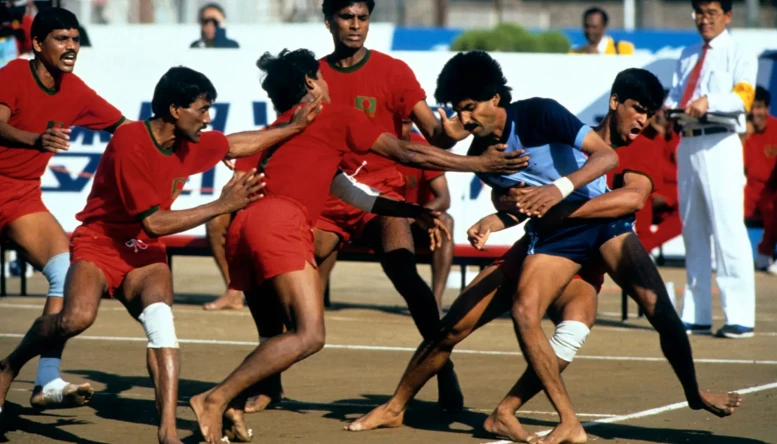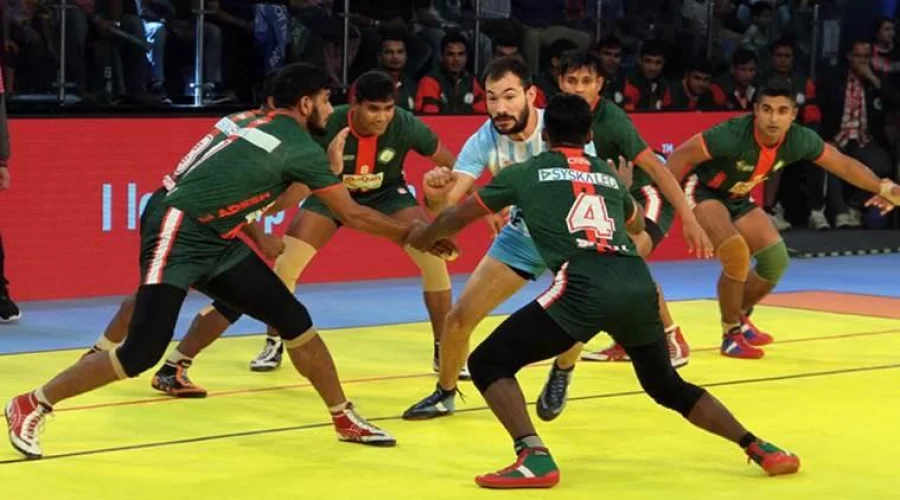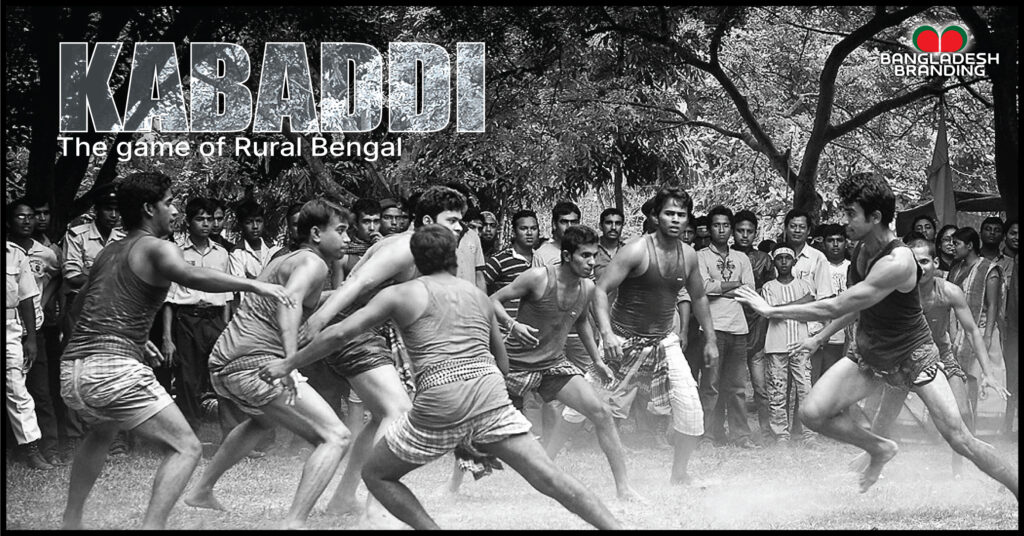Kabaddi: Bangladesh’s National Treasure
Kabaddi is deeply ingrained in Bangladesh’s cultural and sporting life. Recognized as the national sport since 1972, Kabaddi reflects the country’s rich traditions and communal spirit. It is especially beloved in rural areas, where it’s often called the “game of rural Bengal.”
Game Overview
Kabaddi is played on a rectangular court measuring 12.5 meters by 10 meters. Each team consists of 12 players, though only seven players from each team are on the court at any given time. The match is divided into two halves of 20 minutes each, with a 5-minute break in between. Here’s a detailed look at how the game is played:
The Raid: The game begins with one player, known as the raider, entering the opponent’s half. While holding their breath, the raider chants “Kabaddi, Kabaddi” repeatedly—a practice called “cant” or “dak.” The raider aims to touch as many defenders as possible before returning to their side without breaking the chant. Successfully doing so earns their team points.
The Defense: The defending team’s role is to prevent the raider from scoring by tagging them. If the raider is tagged before they return to their side, they are out, and the defending team scores points.
Points are awarded as follows:
- point for each opponent tagged out by the raider.
- bonus points if all players from the opposing team are out.
The team with the most points at the end of the match wins.
Historical Context
 Kabaddi, known regionally as ha-du-du, was traditionally played with varying rules across different areas of Bangladesh. In 1972, the game was officially named Kabaddi and recognized as the national sport, bringing a unified set of rules and national pride.
Kabaddi, known regionally as ha-du-du, was traditionally played with varying rules across different areas of Bangladesh. In 1972, the game was officially named Kabaddi and recognized as the national sport, bringing a unified set of rules and national pride.
The Bangladesh Amateur Kabaddi Federation was established in 1973 to formalize the rules and promote the sport. The federation played a crucial role in standardizing Kabaddi, ensuring consistency in play and supporting its growth.
Bangladesh’s first international Kabaddi match occurred in 1974 against a visiting Indian team, marking a significant step in the sport’s global presence. The match helped showcase the skill and enthusiasm for Kabaddi in Bangladesh and fostered international relations through sport.
In 1978, the Asian Amateur Kabaddi Federation was formed in Villai, India, bringing together delegates from Bangladesh, India, Nepal, and Pakistan. This federation played a key role in advancing Kabaddi across South Asia, promoting regional competitions, and enhancing the sport’s profile.
Achievements and Recognition

Kabaddi has continued to thrive both nationally and internationally. Notably, Bangladesh’s Kabaddi team won the silver medal at the 1990 Asian Games and secured bronze medals in the 2006 and 2010 Asian Games. These achievements highlight the country’s competitive spirit and skill in the sport.
Kabaddi remains a beloved and significant part of Bangladesh’s cultural heritage. It is more than just a game; it represents a deep connection to tradition, community, and national identity, celebrating both athleticism and cultural pride.

